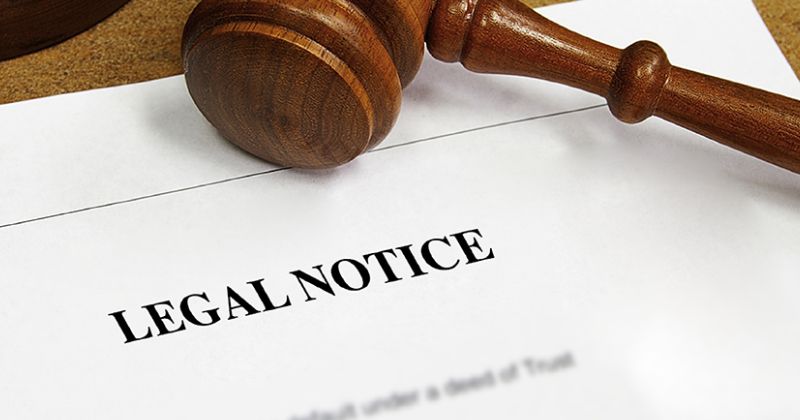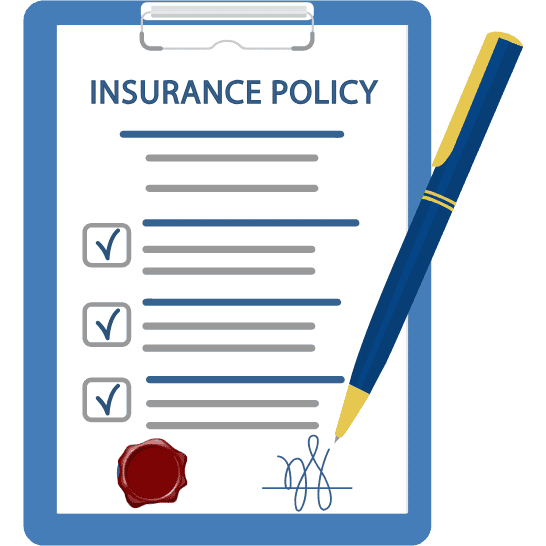What To Do When You Receive a Credit Card Legal Notice?

In today's world, credit cards are an essential tool for managing financial transactions and building credit. However, not everyone can manage their credit card payments effectively, leading to missed payments, rising debt, and, in some cases, legal action. If you have ever received a legal notice related to a credit card debt, you may be wondering what it means and what steps you should take to handle the situation. A credit card legal notice can be a daunting experience. It can leave you feeling overwhelmed and unsure about your rights and obligations. But understanding the legal process and knowing how to respond can make a significant difference in resolving the matter and protecting your financial future. In this article, we’ll explore the ins and outs of credit card legal notices, what they entail, and how services like RupeeRelief can help you navigate such situations. A credit card legal notice is an official communication from a creditor or debt collection agency informing you that legal action is being considered due to your failure to repay the outstanding amount on your credit card. When you don’t make timely payments, the debt may continue to accumulate, and interest and late fees may increase, further compounding the problem. Credit card companies and lenders typically try to resolve the matter through regular communication and attempts to recover the debt. However, if these efforts fail and the debt remains unpaid for a prolonged period, they may issue a legal notice as a formal warning before initiating legal proceedings. This notice usually mentions the total outstanding balance, any additional penalties, and the legal steps that will be taken if the debt remains unresolved. Credit card companies are obligated to recover the money owed to them. If payments are not made for several months or if there is a pattern of missed payments, the company may resort to legal action. Before this happens, they will usually send a series of reminders, followed by a final notice. If the debt remains unpaid, they might transfer your account to a collection agency or file a case against you in court. Legal notices are often sent when: A typical credit card legal notice includes: Receiving a legal notice is certainly an alarming experience, but it’s essential not to panic. Here are the key steps to take when you receive a legal notice for credit card debt: Take time to read the legal notice thoroughly. Understand the details of the debt, the amount you owe, and the deadlines mentioned in the notice. If you’re unsure about any of the terms, it’s advisable to consult a legal expert or financial advisor for assistance. Before proceeding further, verify that the debt is valid. Review your credit card statements and any agreements you signed with the credit card company. Make sure the amount mentioned in the notice corresponds to what you owe. In some cases, the creditor may have mistakenly issued a legal notice due to clerical errors. However, if the debt is genuine, you’ll need to act promptly. Ignoring the notice won’t make the problem go away; in fact, it may escalate the situation. If you ignore the notice, the creditor may proceed with legal action, and you may face more severe financial consequences, such as a court judgment, garnishment of wages, or seizure of assets. It’s important to communicate with the creditor or collection agency that issued the notice. Many creditors are willing to negotiate payment terms or come up with a payment plan to help you manage the debt. Be honest about your financial situation, and try to reach a settlement or repayment agreement that works for both parties. If you feel overwhelmed by the process or unsure about how to proceed, it may be time to seek professional help. Services like RupeeRelief specialize in helping individuals with unsecured loan and credit card debt. With expert guidance, you can explore options like debt restructuring, settlement, or even legal defense if necessary. RupeeRelief helps individuals negotiate with creditors, reducing the total amount owed and providing manageable repayment options. They can also help you avoid the long-term consequences of legal actions, such as wage garnishments or property liens. If you're unable to pay the full amount and negotiations have not yielded results, debt settlement might be an option. In some cases, creditors may be willing to accept a lump sum that is less than the total amount due to resolve the issue quickly. RupeeRelief offers expert services to help you navigate the debt settlement process, ensuring that you don’t have to handle these negotiations on your own. If the creditor decides to pursue legal action despite attempts at resolution, it’s crucial to seek legal representation. A lawyer specializing in debt recovery and consumer rights can assist you in understanding your options in court. They may be able to argue your case, request a reduction in the debt, or even seek a more favorable repayment plan. Legal professionals can help you understand your rights and obligations, minimizing the risks of harsh legal consequences. While addressing an existing credit card debt is critical, taking steps to prevent future debt is just as important. Here are a few strategies to help you stay on top of your finances: Credit card legal notices are serious, but they are not the end of the road. By understanding the notice, verifying the debt, and taking prompt action, you can resolve the situation in a way that minimizes the financial and emotional impact. If you are struggling to manage your debt or dealing with the consequences of missed payments, services like RupeeRelief can be invaluable in helping you settle or manage your credit card debt without facing drastic legal consequences. By seeking professional advice and taking proactive steps, you can regain control over your financial situation and prevent future debt-related issues from arising.What is a Credit Card Legal Notice?
Why Do Credit Card Companies Send Legal Notices?
What Does a Credit Card Legal Notice Include?
Steps to Take After Receiving a Credit Card Legal Notice
1. Read the Notice Carefully
2. Check the Validity of the Debt
3. Avoid Ignoring the Notice
4. Contact the Creditor
5. Seek Professional Help
6. Explore Debt Settlement
7. Review Legal Action
Preventing Future Credit Card Debt
Conclusion

